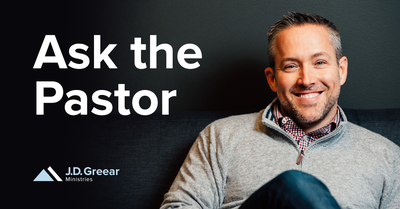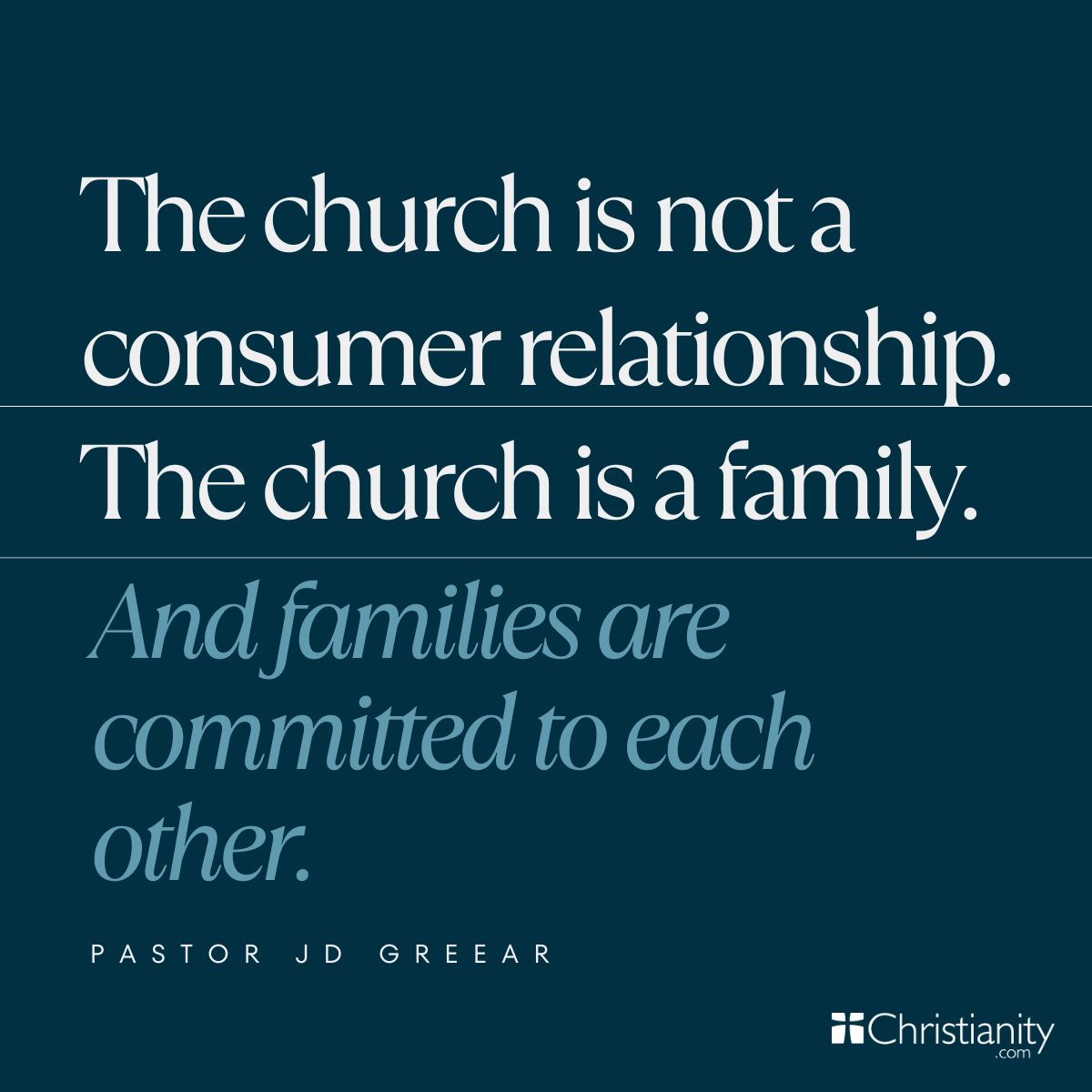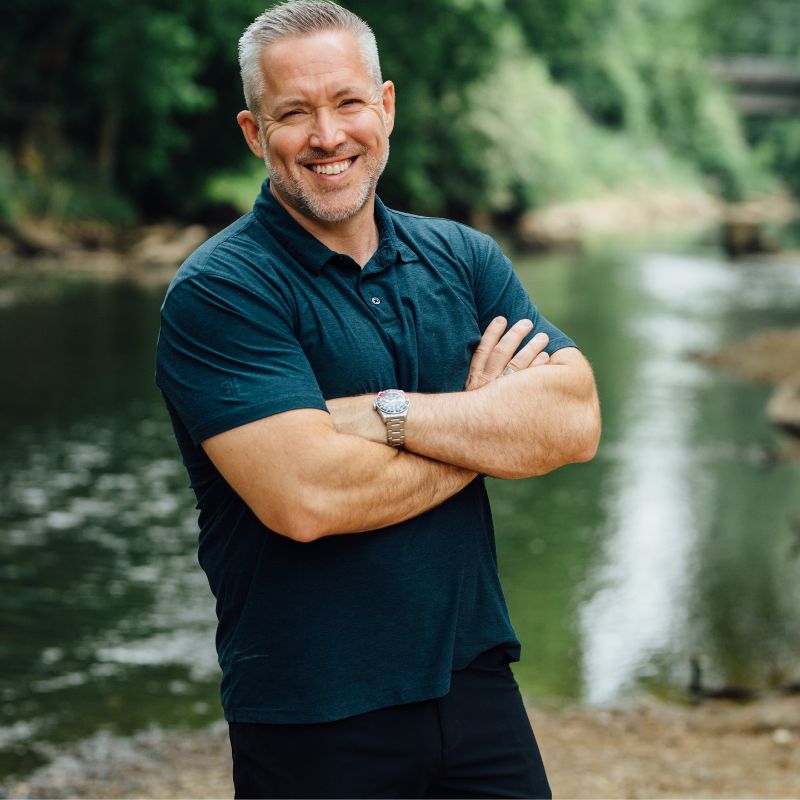Does Church Membership Matter?
Ask the Pastor with J.D. Greear


Audio By Carbonatix
By J.D. Greear, Crosswalk.com

There was a time when the question of church membership was not much of a question at all. Jump back a generation or two, and nearly every church in the U.S. had a roster of members. Now the question, however, is much more persistent. Many contemporary churches have membership but don’t place much emphasis on it. Others don’t have membership at all, encouraging their people to get involved and engaged without a more formal process.
So, should believers join their local church?
When you look at Scripture, you won’t find the word “membership.” But that’s not much of an argument against membership, since the word “Trinity” isn’t in the Bible either. The concept is.
The core concept of membership is having a covenant community where you belong. We see that evidenced in multiple places. In 1 Corinthians 5, Paul mentions a case of removing someone from the body of believers, which implies a formal category. In Acts 6, the believers have an election, again implying an “in/out” category. And in 1 Timothy 5:3–16, we see a clear teaching on how to handle widows in the church. In that latter passage, there’s even language of creating a roster so the leaders would be able to care for these women well.
The New Testament writers never say, “You need to become a member of the local church.” But every letter in the New Testament assumes that believers are an active part of a local church gathering. We see this in the how the writers give instruction on submission to church authority, how believers ought to handle sin within the church, and the elders’ responsibility to shepherd the flock under their care (1 Corinthians 5, Hebrews 13:17, Acts 20:28). If we are to take these commands seriously, we have to be joined to a local body to know who our leaders are.
In my experience, many people resist joining the church because they approach the church with a consumer mindset. They don’t want to belong. They don’t want expectations placed upon them. They want to receive something. It may be a good something—biblical teaching, for instance—but the overall approach is consumeristic.
I’m not always opposed to consumer relationships. They’re fine if you’re talking about fast food. But apply that kind of thinking to relationships like your marriage or your children, and you will create major problems.
The church is not a consumer relationship. The church is a family. And families are committed to each other.
The church is not a consumer relationship. The church is a family. And families are committed to each other.

The biblical metaphor that shows this most clearly is that of being “one body” (e.g. 1 Corinthians 12). Can you imagine your physical body with “non-committed” body members? What good is a hand if it’s not actually connected to the rest of you?
It’s just as silly for Christians to think they can follow Christ without engaging in the life of the local church body. How do you use your gifts and experience the gifts of others if not in the local community? How do you fulfill the “one another” commands of Scripture unless you are, well, with one another?
Generally, though, when I encounter someone who is reluctant to join a church, the issues aren’t predominantly theological or ideological. They’re usually more a combination of preference and personal history. Those of us in ministry should be sensitive to that, but we can also help disciple our people by letting them know that it is a categorically good thing for them to become members.
For instance, I frequently have conversations like this with college students. They are plugged into their college ministry, relatively involved in church, and just don’t see much need to join. But rather than bashing them over the head with guilt (“Jesus died so you could join his church! Don’t spurn his sacrifice!”), I try to remind them that the local church is a tremendous gift. In the local church, college students can find multi-dimensional discipleship. In the local church, college students can be led by elders whose very role is to shepherd them. In the local church, college students can practice love and service in ways that set them up for a lifetime of faithfulness.
If you’re hesitant to join a local church because it’s full of imperfect people, you’ll be waiting a long time. Dietrich Bonhoeffer once said that there are three stages of growth when it comes to Christians engaging in the church. The first is disgust at the sins of others. The second is disgust at your own sin. On their own, those first two stages push us away from the church. But the third stage is where we recognize that we can re-enter the church as an instrument in the hands of the Redeemer—a Redeemer who has, in fact, redeemed us from being the self-righteous Pharisee committed to judging everyone else.
Don’t wait for the perfect church. It simply doesn’t exist. And if it did, the moment you joined it, it wouldn’t be perfect anymore! Instead, find a church with good biblical preaching, that emphasizes community, that practices accountability, and that propels you into ministry. Then join in with everything you’ve got!
Originally published by jdgreear.com. Used with permission.
Photo Credit: SWN Design
 J.D. Greear is the pastor of The Summit Church, in Raleigh-Durham, North Carolina. He hosts Summit Life, a 30-minute daily radio broadcast and weekly TV program as well as the Ask the Pastor podcast. Pastor J.D. Greear has authored many books, most notably Gospel, Stop Asking Jesus Into Your Heart, and Gaining by Losing.
J.D. Greear is the pastor of The Summit Church, in Raleigh-Durham, North Carolina. He hosts Summit Life, a 30-minute daily radio broadcast and weekly TV program as well as the Ask the Pastor podcast. Pastor J.D. Greear has authored many books, most notably Gospel, Stop Asking Jesus Into Your Heart, and Gaining by Losing.
Pastor J.D. completed his Ph.D. in Theology at Southeastern Baptist Theological Seminary. He serves as a member of the Board of Directors of Chick-fil-A, serves as a Council member for The Gospel Coalition, and recently served as the 62nd president of the Southern Baptist Convention. Pastor J.D. and his wife Veronica are raising four awesome kids.
"Editor's Note: Pastor JD Greear's "Ask the Pastor" column regularly appears at Christianity.com, providing biblical, relatable, and reliable answers to your everyday questions about faith and life. Email him your questions at requests@jdgreear.com."



























